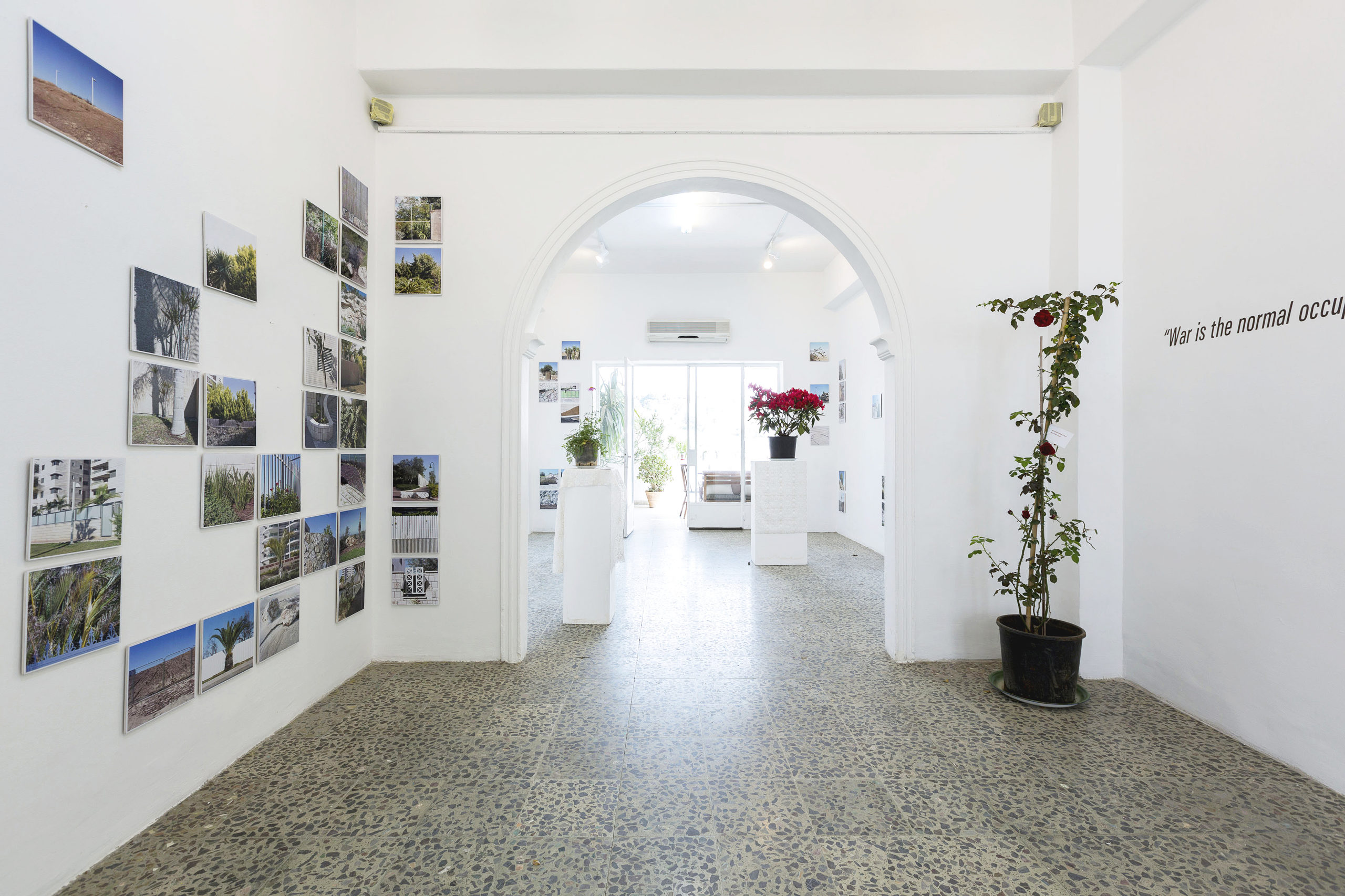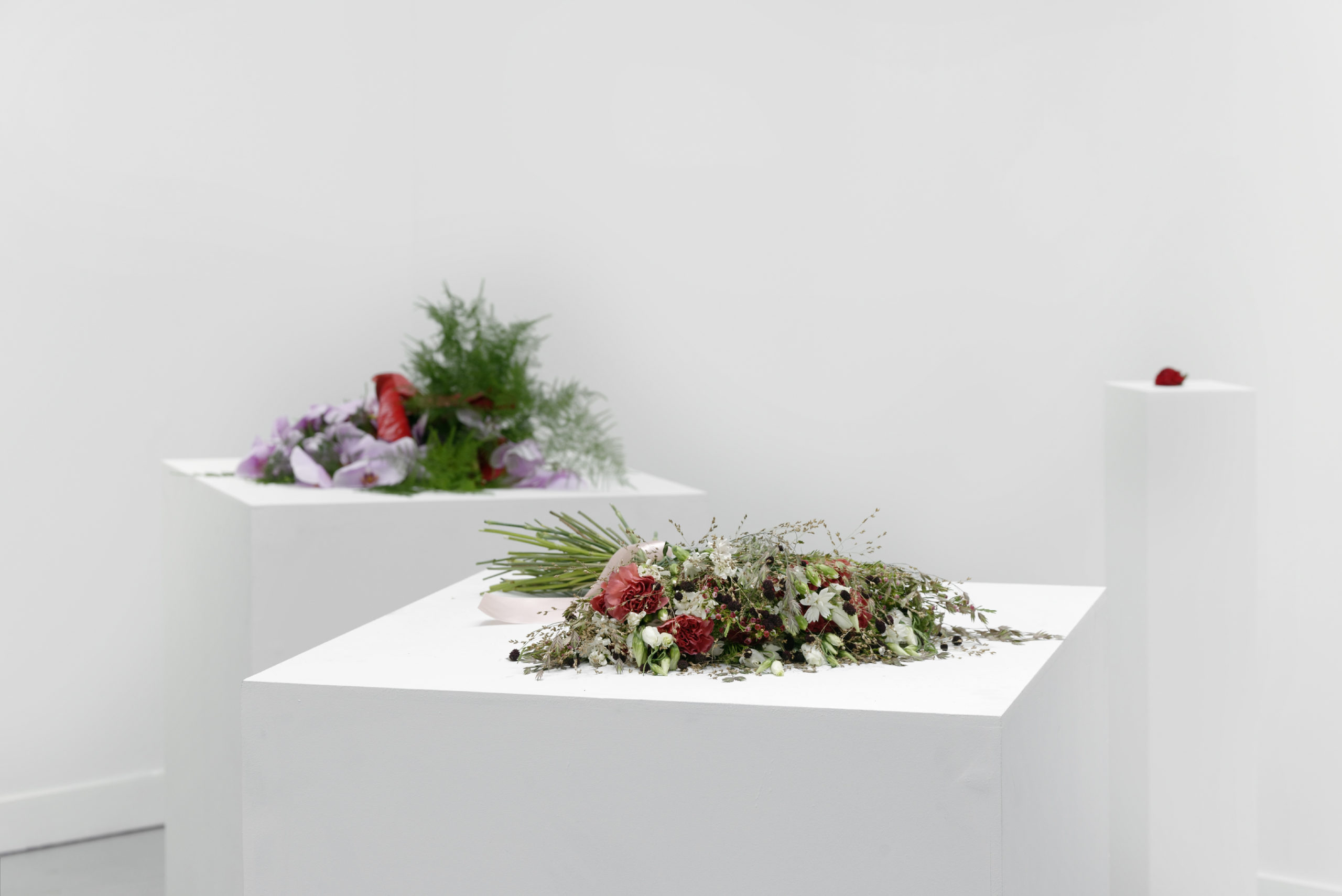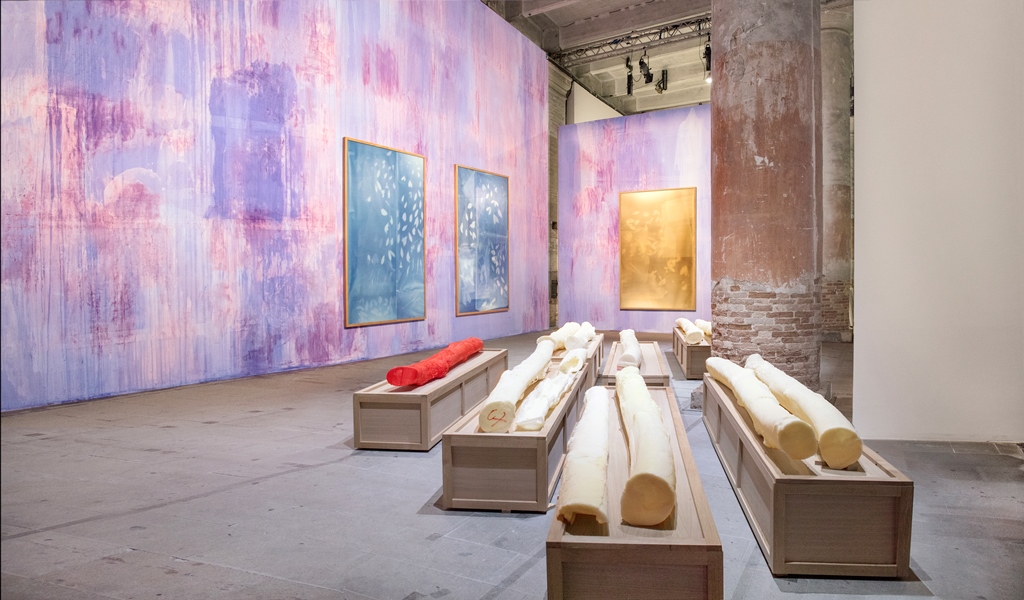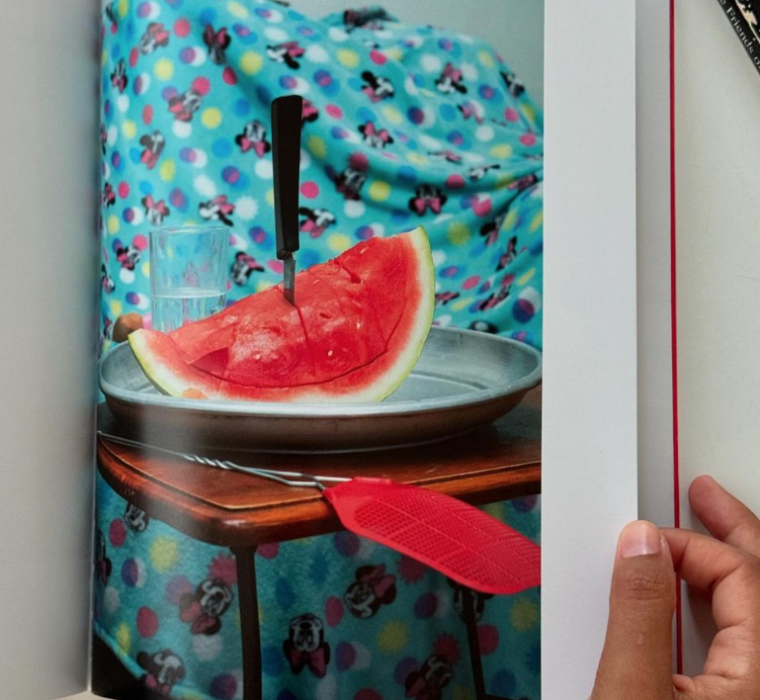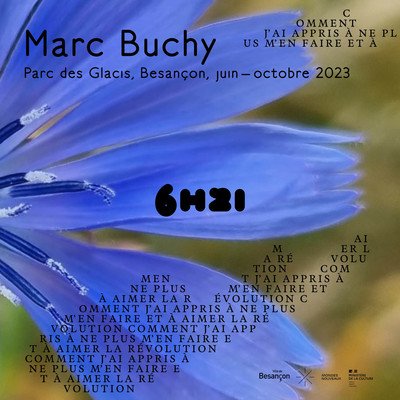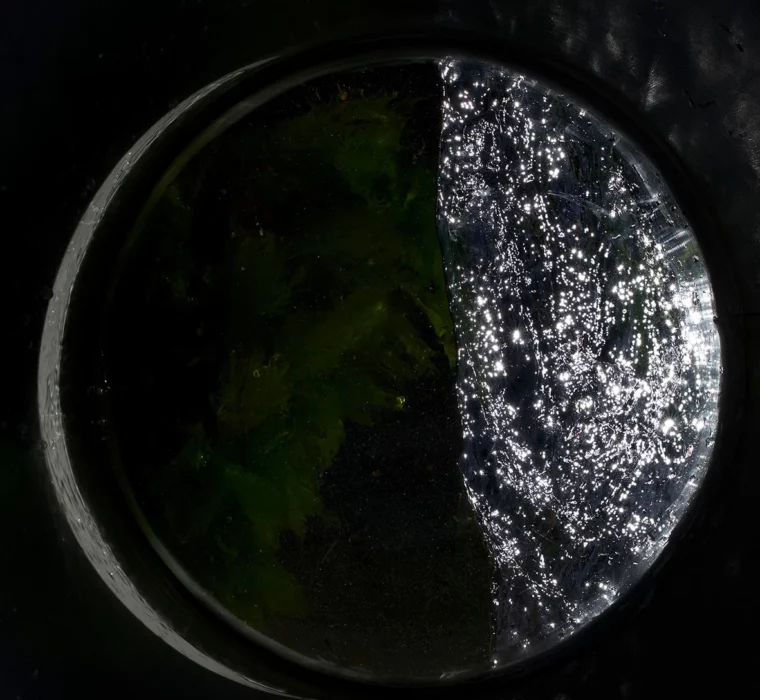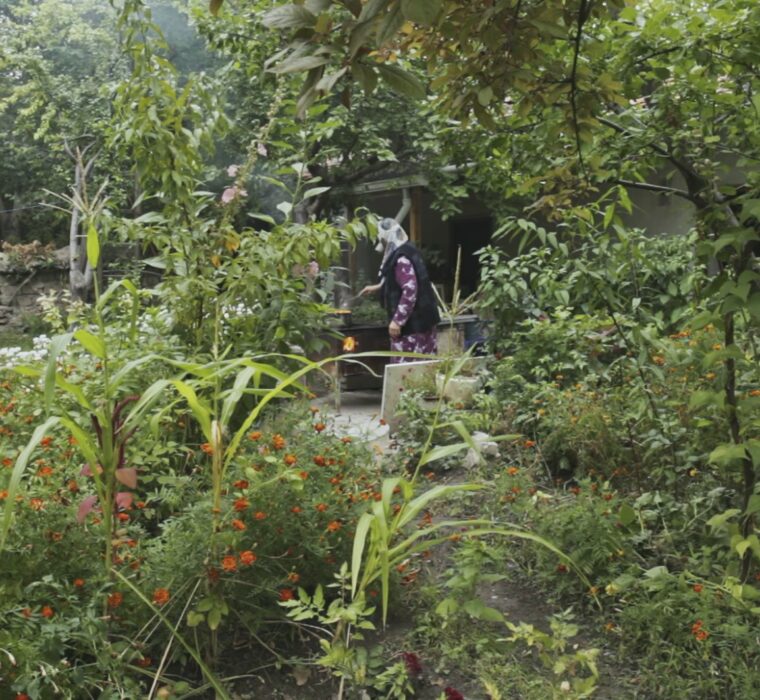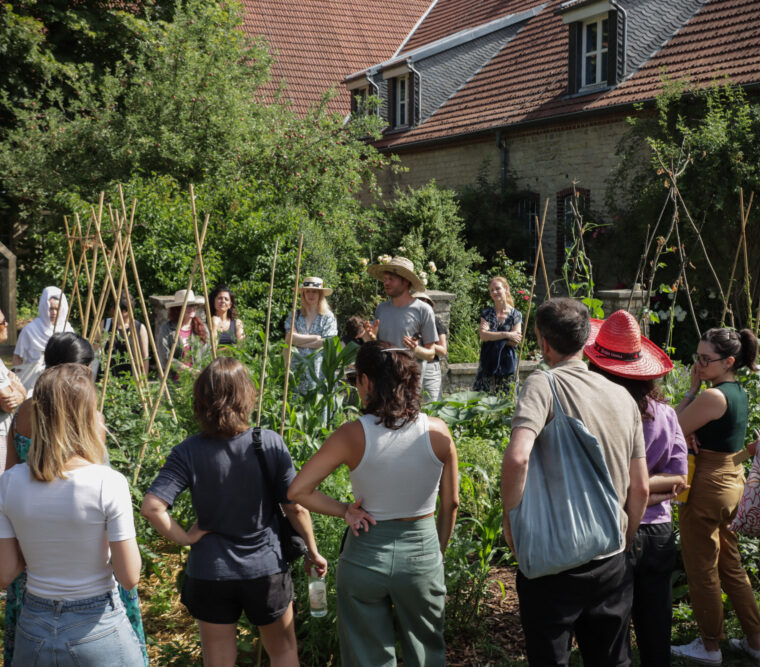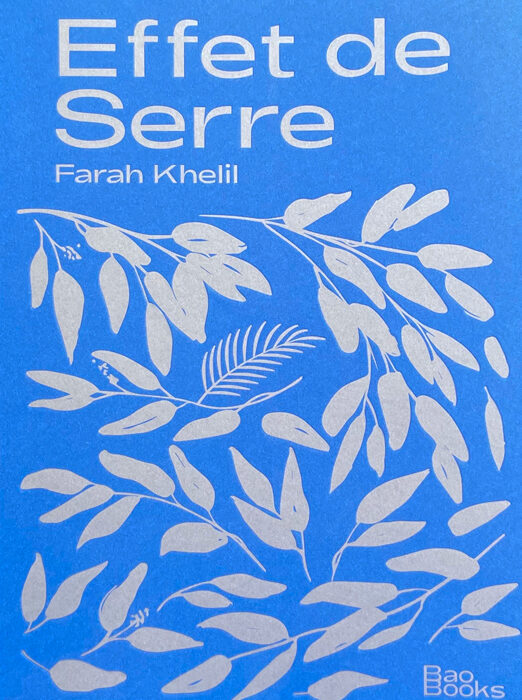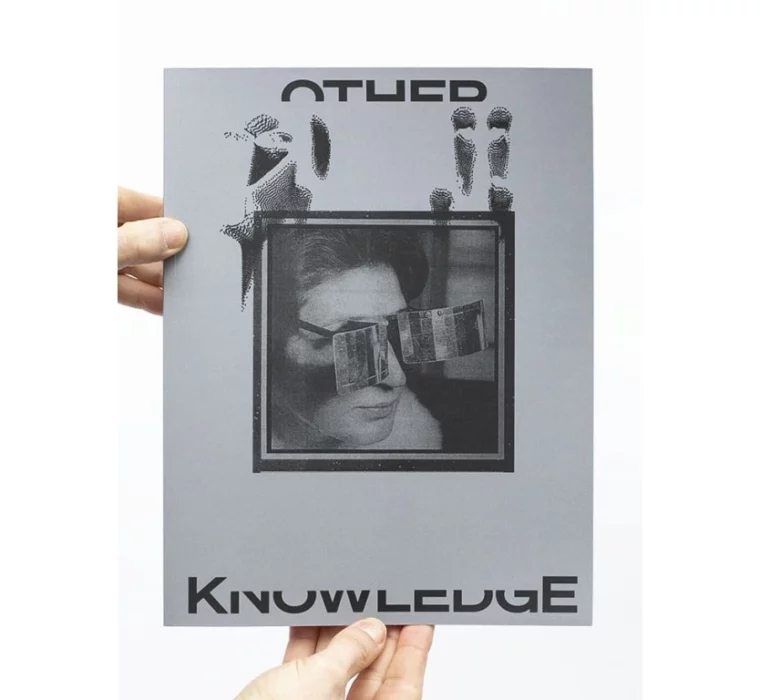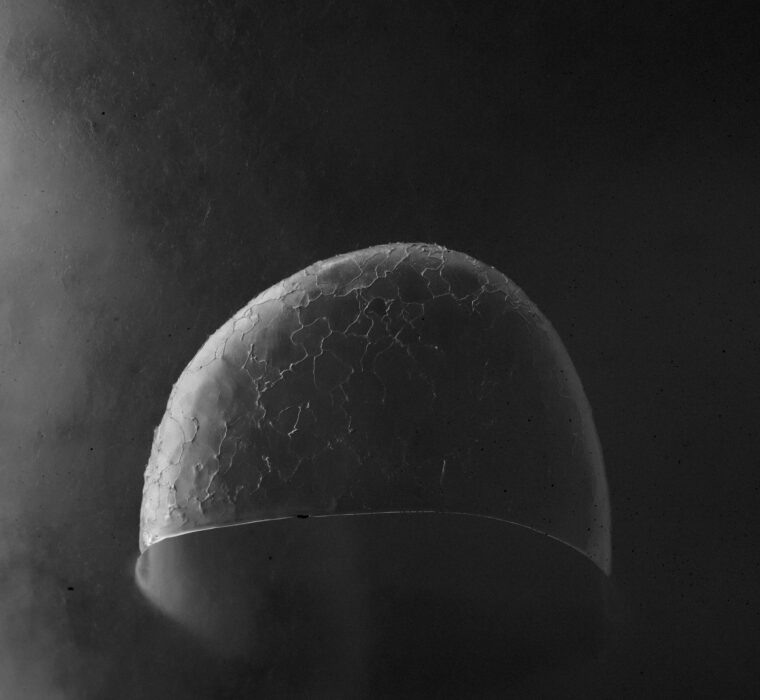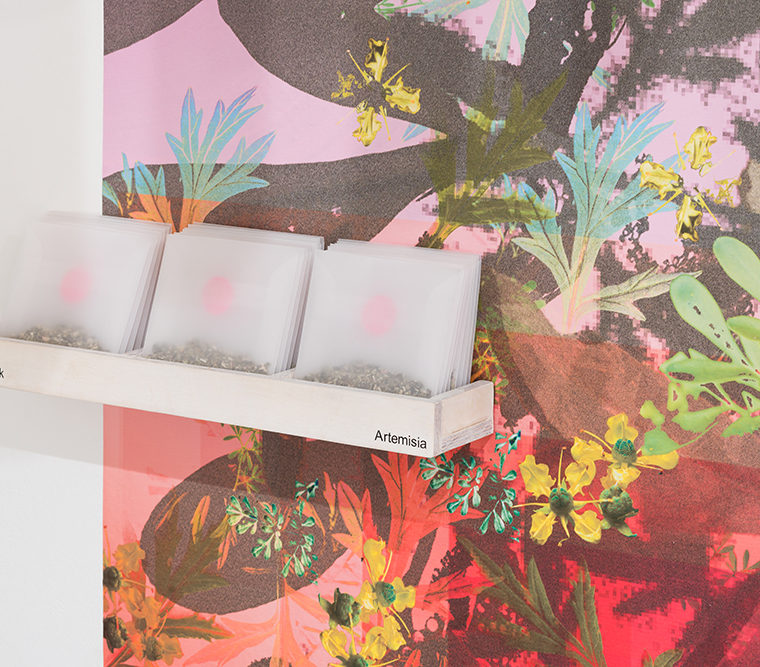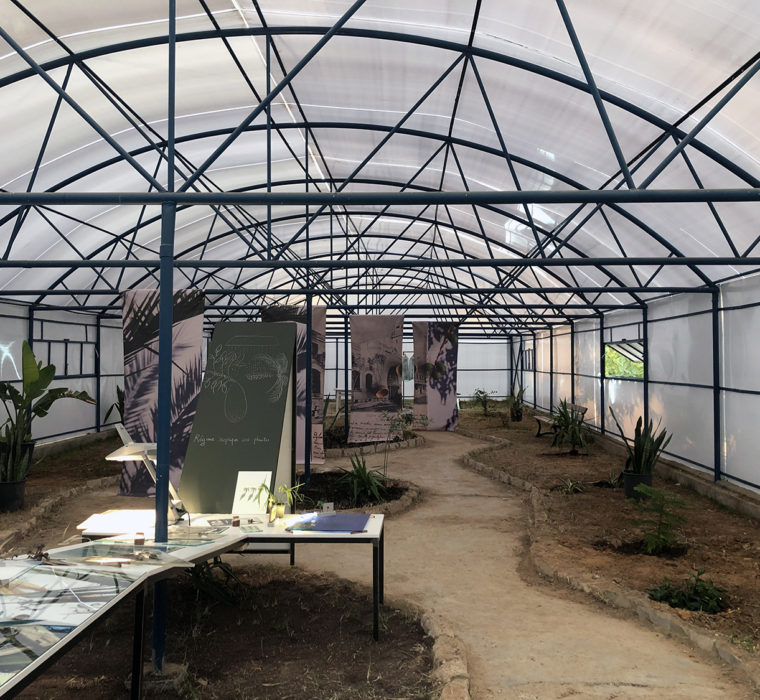Waking Dormant Seeds
I was invited by Uriel Orlow to share my insight as a curator focusing on botanical politics and to present other peers (artists, academics, and curators) and exhibitions that are making history in this field that is gaining exposure. Building on my interest for deconstructing invisible power structures and starting from Botany under Influence, the 2016 group show I organised at apexart in New York, I explore several facets of the complex relations of nature and geopolitics. Contemplating botany’s colonial history, in relation to the transfer and circulation of plants and raw materials, I move on to the commodification of nature and its insertion in consumption networks. The essay also highlights the hierarchical and artificial character of botanical gardens, and denounces the misuses of flower diplomacy, as well as the risks of botanical nationalism. The essay closes with a panorama of artists investigating natural healing methods, plants’ spirituality and how they have been used to resist domination patterns, an another important point in my research. Amongst others, I discuss works by Maria Thereza Alves, Cooking Sections, Raja’a Khalid, Otobong Nkanga, Corinne Silva and Thu-Van Tran, as well as artists included in exhibitions I have curated.
Published in Theatrum Botanicum
Editors Shela Sheikh & Uriel Orlow
Contributors
Sita Balani
Melanie Boehi
Clelia Coussonnet
Karen Flint
Jason T. W. Irving
Nomusa Makhubu
Bettina Malcomess
Karin van Marle
Khadija von Zinnenburg Carroll
Waking Dormant Seeds
I was invited by Uriel Orlow to share my insight as a curator focusing on botanical politics and to present other peers (artists, academics, and curators) and exhibitions that are making history in this field that is gaining exposure. Building on my interest for deconstructing invisible power structures and starting from Botany under Influence, the 2016 group show I organised at apexart in New York, I explore several facets of the complex relations of nature and geopolitics. Contemplating botany’s colonial history, in relation to the transfer and circulation of plants and raw materials, I move on to the commodification of nature and its insertion in consumption networks. The essay also highlights the hierarchical and artificial character of botanical gardens, and denounces the misuses of flower diplomacy, as well as the risks of botanical nationalism. The essay closes with a panorama of artists investigating natural healing methods, plants’ spirituality and how they have been used to resist domination patterns, an another important point in my research. Amongst others, I discuss works by Maria Thereza Alves, Cooking Sections, Raja’a Khalid, Otobong Nkanga, Corinne Silva and Thu-Van Tran, as well as artists included in exhibitions I have curated.
Published in Theatrum Botanicum
Editors Shela Sheikh & Uriel Orlow
Contributors
Sita Balani
Melanie Boehi
Clelia Coussonnet
Karen Flint
Jason T. W. Irving
Nomusa Makhubu
Bettina Malcomess
Karin van Marle
Khadija von Zinnenburg Carroll
‘Contemporary art’s engagement with botanical politics is relevant for the public arena as it creates space to metaphorically “wake dormant seeds” and foster reflection on a crucial topic that has long lacked awareness—or at least exposure. […] This connects me to practitioners who draw parallels between resistance strategies developed by people under schemes of domination and plants’ potential to become mechanisms of emancipation instead of tools of power assertion.’
‘Contemporary art’s engagement with botanical politics is relevant for the public arena as it creates space to metaphorically “wake dormant seeds” and foster reflection on a crucial topic that has long lacked awareness—or at least exposure. […] This connects me to practitioners who draw parallels between resistance strategies developed by people under schemes of domination and plants’ potential to become mechanisms of emancipation instead of tools of power assertion.’
About ‘This publication emerges from Uriel Orlow’s Theatrum Botanicum (2015–18), a multi-faceted project encompassing film, sound, photography, and installation, which looks to the botanical world as a stage for politics. Working from the dual vantage points of South Africa and Europe, the project considers plants as both witnesses to, and dynamic agents in, history. It links nature and humans, rural and cosmopolitan medicine, tradition and modernity across different geographies, histories, and systems of knowledge—exploring the variety of curative, spiritual, and economic powers of plants. The project addresses “botanical nationalism” and “flower diplomacy” during apartheid; plant migration; the role and legacies of the imperial classification and naming of plants; bioprospecting and biopiracy; and the garden planted by Nelson Mandela and his fellow inmates at Robben Island prison.
This publication is made up of two intertwining books: one documents the works of Theatrum Botanicum, including the scripts for two films; the second is a compendium of brief, commissioned essays that aims to offer an accessible snapshot of the complex and multifaceted issues that inform and are raised by the artworks. The independent but interrelated essays, which either speak directly to the artworks or follow lines of inquiry alongside them, cover perspectives from postcolonial cultural studies; art criticism and art history; natural history, botany (including ethnobotany and economic botany), and conservation; jurisprudence and critical legal studies; and critical race studies.’
About ‘This publication emerges from Uriel Orlow’s Theatrum Botanicum (2015–18), a multi-faceted project encompassing film, sound, photography, and installation, which looks to the botanical world as a stage for politics. Working from the dual vantage points of South Africa and Europe, the project considers plants as both witnesses to, and dynamic agents in, history. It links nature and humans, rural and cosmopolitan medicine, tradition and modernity across different geographies, histories, and systems of knowledge—exploring the variety of curative, spiritual, and economic powers of plants. The project addresses “botanical nationalism” and “flower diplomacy” during apartheid; plant migration; the role and legacies of the imperial classification and naming of plants; bioprospecting and biopiracy; and the garden planted by Nelson Mandela and his fellow inmates at Robben Island prison.
This publication is made up of two intertwining books: one documents the works of Theatrum Botanicum, including the scripts for two films; the second is a compendium of brief, commissioned essays that aims to offer an accessible snapshot of the complex and multifaceted issues that inform and are raised by the artworks. The independent but interrelated essays, which either speak directly to the artworks or follow lines of inquiry alongside them, cover perspectives from postcolonial cultural studies; art criticism and art history; natural history, botany (including ethnobotany and economic botany), and conservation; jurisprudence and critical legal studies; and critical race studies.’
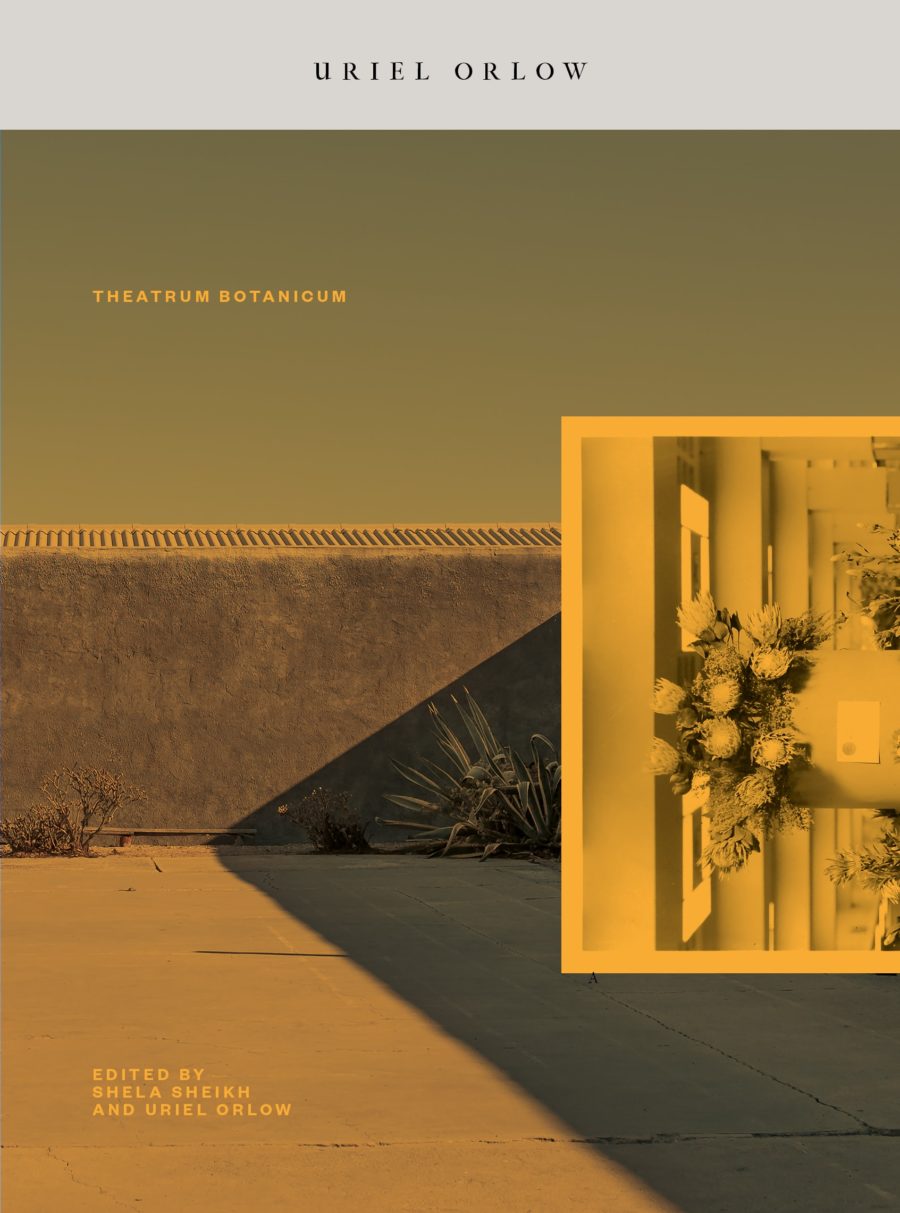
Info
Published by Sternberg Press & The Showroom, London, UK
Design by In the shade of a tree (Samuel Bonnet, Sophie Demay and Maël Fournier-Comte)
June 2018, English
21.5 x 29 cm, 368 pages, color ill., softcover
ISBN 978-3-95679-415-5

Info
Published by Sternberg Press & The Showroom, London, UK
Design by In the shade of a tree (Samuel Bonnet, Sophie Demay and Maël Fournier-Comte)
June 2018, English
21.5 x 29 cm, 368 pages, color ill., softcover
ISBN 978-3-95679-415-5
‘Artists have been particularly interested in exploring the ramifications of botanical diplomacy and its ideological uses. In this, they have undertaken valuable archival work, unearthing obliterated information on the tactical use of flowers in international affairs. Many such pieces show how vegetation has witnessed key historical events, as well as crystallized political and diplomatic tensions.’
— Quotes by Clelia Coussonnet, Waking Dormant Seeds, 2018
‘Artists have been particularly interested in exploring the ramifications of botanical diplomacy and its ideological uses. In this, they have undertaken valuable archival work, unearthing obliterated information on the tactical use of flowers in international affairs. Many such pieces show how vegetation has witnessed key historical events, as well as crystallized political and diplomatic tensions.’
— Quotes by Clelia Coussonnet, Waking Dormant Seeds, 2018

